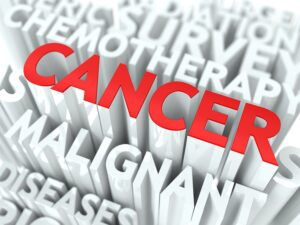Is Your Elderly Loved One at Risk of Getting Skin Cancer?

Were you aware that skin cancer affects over 8,000 people every single day in the United States alone? This is why it is so essential to make sure everyone does all they can to protect their skin. If you are helping to care for an elderly loved one, it is important to know whether they are at risk of getting skin cancer. While some risks are unavoidable, others can be reduced.
Too Much Sunlight Exposure
Is your elderly loved one out in the sun far too much? If they are and they don’t use proper skincare products to protect their skin, they could have a higher risk of developing skin cancer. In fact, millions of skin cancer cases every single year are a result of too much sunlight exposure. Every time that your elderly loved one goes outdoors, especially when the sun is bright, be sure you or their elderly care providers make them wear proper sunscreen.
Using a Tanning Bed
Has your elderly loved one used a tanning bed before? A few times may not harm them. However, if they have regularly used a tanning bed this could increase their risk of getting skin cancer. While many elderly adults don’t still use a tanning bed, if yours does, it would be best to have them stop going.
Type of Skin
Research shows that different types of skin have a higher risk of getting skin cancer than other skin types. People who have fair skin, burn all the time, and hardly ever get a suntan will have a higher chance of getting skin cancer. This is why it is so important to always wear the proper sunscreen when going outdoors. If your elderly loved one has this type of skin, you should be even more cautious in making sure they are using appropriate sunscreen.
Family History
Those who have a family history of skin cancer also have a higher risk of getting skin cancer themselves. If even one of your elderly loved one’s family members has been diagnosed with skin cancer, this could increase their risk. If this is the case, it is important to make sure they are regularly checking for unusual bumps, moles, or markings on their skin. If anything is noticed, make sure your elderly loved one gets it checked out by a dermatologist or their doctor right away.
These are some of the things that may increase your elderly loved one’s risk of getting skin cancer. Now that you know about these risks, you can do what is necessary to help your elderly loved one prevent skin cancer.
If you or an aging loved-one is considering elderly care in O’Fallon, MO please contact the caring staff at Autumn Home Care, LLC today at 636-448-9347.
Sources
https://www.aad.org/media/stats-skin-cancer
https://www.cdc.gov/cancer/skin/statistics/behavior.htm
https://www.cdc.gov/genomics/resources/diseases/skin.htm
- Senior Home Care Tips to Prevent Bed Sores - November 3, 2023
- Understanding Personal Care at Home - October 19, 2023
- Home Care Assistance Tips for Long Distance Caregiving - October 2, 2023

